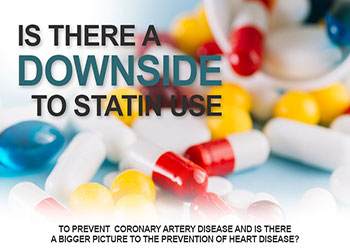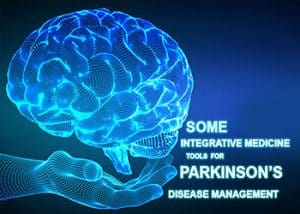

Statin drugs work by inhibiting HMG-CoA-reductase in the liver which is required to synthesize cholesterol. Infact “statin drugs inhibit not just the production of cholesterol, but a whole family of intermediary substances, many if not all of which have important biochemical functions in their own right” say Enig and Fallon (3)
Firstly statins deplete the body of coenzymeq10 (coq10), which is benefitial to heart and muscle function. This depletion leads to fatigue, muscle weakness, soreness, and eventually heart failure. Muscle pain and weakness, and rhabdomyolysis occurs when statins activate the atropine-1 gene, which plays a key role in muscle atrophy. (13)
This muscle pain and weakness may be an indication of tissue breakdown which can also cause kidney damage.
Statins have been linked to :
What are the numbers needed to treat (NNT)? (how many people have to take the drug to avoid one incident, such as a heart attack). For example a NNT of 50 for heart attacks, equates to 50 people needing the drug to prevent 1 heart attack.
Business week did an excellent story and found the REAL numbers right on a pharmaceutical ad. (19) At first glance the ad boasts that this particular statin reduces heart attacks by 36%. There is an asterix though, and in smaller print the following appears : “That means in a large clinical study, 3% of patients taking a sugar pill or placebo had a heart attack compared to 2% using this particular statin”

What this means is that for every 100 people who took the drug for 3.3 years, 3 people on placebos, and 2 on the statin, had heart attacks. This equates to 1 less person per hundred having a heart attack on this particular statin.
The 36% figure looks so much more impressive doesn’t it!
The answer is not merely to turn to a drug to lower your cholesterol and ldl as the so-called experts would have you believe.
It is inflammation and oxidative stress that causes ldl (“bad cholesterol”) to cause blood vessel disease (atherosclerosis).
Cholesterol has been described the last few decades as the smoking gun of heart disease. Cholesterol per se is not the cause of heart disease.
Cholesterol is in every cell of the body, where it helps produce cell membranes, steroid hormones, including sex hormones, vitamin d and bile acids that are needed to digest fat. Cholesterol also helps in the formation of new memories and is vital for the formation of new memories and is vital for normal neurological functioning.
The liver produces about 75% of your body’s cholesterol (1).
The American heart association recommends that your total cholesterol and ldl be kept below a certain level (and these guidelines are constantly being aggressively modified to lower your cholesterol even more). However total cholesterol is not a good predictor of heart disease unless extremely high.
What about other ratios that are better predictors of heart disease :


HDL (good cholesterol) is a very potent heart disease risk factor. Why do we concentrate too much on total cholesterol and ldl levels when high levels of these aren’t always associated with heart disease (if your inflammation and oxidative stress are low)? Shouldn’t we be looking at ways to lower inflammation and oxidative stress and look at ALL the cardiovascular risk factors? One might say there is good ldl and bad ldl (inflamed oxideised ldl)
Remember cholesterol is not the only player in the risk of heart disease. There are many risk factors :
Inflammation is sometimes a good thing as it is the body’s natural response to invaders it perceives as threats, in other words it helps the body heal. If your arteries are damaged however, a similar process occurs except the result is plaque formation. This plaque , along with thickening of your blood and constriction of the blood vessels increases your risk for high blood pressure and heart attacks. Cholesterol comes into the picture, because it is necessary to replace the damaged cells. No cell can form without cholesterol. So the liver will generate more cholesterol when necessary to produce healthy cells.
The test normally performed to assess chronic inflammation is crp(c-reactive protein, preferably highly sensitive crp..<1, low risk, 1-2 moderate risk, >3 high risk for heart disease).
In the eyes of conventional medicine , when there is a raised cholesterol it is a sign of increased risk…is there a counter argument?
Sally Fallon, the president of the Weston A. Price foundation, and Mary Enig, PhD , an expert in lipid biochemistry, have gone so far as to call high cholesterol “an invented disease,a problem that emerged when health professionals learned how to measure cholesterol levels in the blood” (3)
What is the explanation? If you have increased levels of cholesterol, it as at least in part because of the increased inflammation in the body…this is to help the body heal and repair.
Conventional medicine recommend that lowering cholesterol is the way to reduce heart disease. Dealing with the inflammation and oxidative stress might be a better option!
As Dr Rosedale so rightly points out (2) “if excessive damage is occurring, such that is necessary to distribute extra cholesterol through the bloodstream, it would not seem wise to merely lower cholesterol and forget about why it is there in the first place. It would seem much smarter to reduce the extra need for the cholesterol – the excessive damage that is occurring, the reason for the chronic inflammation.”


In 2006 a review in the Annals of Internal Medicine (8) found that there is insufficient evidence to support the target numbers outlined by the panel. The authors of the review were unable to find research providing evidence that achieving a specific LDL target level was important in and of itself, and found that the studies attempting to do so suffered from major flaws. Eight of the none doctors on the panel that developed the new cholesterol guidelines had been making money from the drug companies that manufacture statin cholesterol-lowering drugs (9).
According to data from Medco Health Solutions Inc., more than half of insured Americans are taking drugs for chronic health conditions. And cholesterol lowering medications are the second most common variety among this group (high blood pressure medications—another vastly over-precribed category—were first) (11)
Disturbingly, as written in Business Week early in 2008, “Some researchers have even suggested—half jokingly –that the medications should be put in the water supply” (12)
Chronic inflammation is caused by, for example :
To lower cholesterol naturally :
Oxidation refers to the process of some material combining with oxygen, either in the air or in the body. Fats that have become oxidized are referred to as being rancid. The process begins with damage to the inner lining of the blood vessels. Cells is the arterial wall begin to pick up oxidized lipoprotein from the blood (like oxidized ldl). Other materials such as cholesterol esters, calcium, fibrinogen, and other fatty materials, become incorporated in the build up of atheromas. This accumulation of oxidized fats can occur only if tissue levels of antioxidants (Vit A, E, C, Superoxide dismuatase are depleted)
Prevent arterial “rust” references 25-32
Summary of Nutrition Guidelines for Dyslipidemia Treatment :
References :
1. American heart associationjanuary 23, 2008 http://www.americanheart.org/presenter.jhtml?identifier=3046105
2. Mercola.com, Cholesterol is NOT the cause of heart disease, Ron Rosedale May 28,2005 http://www.mercola.com/2005/may/28/cholesterol_heart.htm
3. Fallon,S. and Mary Enig. “Dangers of statin drugs : What you haven’t been told about popular cholesterol lowering medicines,” The Weston A. Price Foundation http://www.westonaprice.org/moderndiseases/statin.html
4. Pyscosomatic medicine 2000;62 http://articles.mercola.com/sites/articles/archive/2000/03/26/cholesterol-depression.aspx
5. Epidemiology 2001 Mar; 12 168-172 http://articles.mercola.com/sites/articles/archive/2001/08/08/suicide.aspx
6. Annals of Internal Medicine (1998;128(6):478-487 The journal of the American medical association (1997;278:313-321) http://articles.mercola.com/sites/articles/archive/2008/01/02/low-cholesterol-linked-to-violence.aspx
7.The journal of the American College of Cardiology July 31,2007;50:409-418http://content.onlinejacc.org/cgi/content/short/50/5/409
8. Annals of internal medicine October 3,2006; 145(7): 520-530 http://www.annals.org/cgi/content/full/145/7/520
9. USA Today.com October 16,2004 http://www.usatoday.com/news/health/2004-10-16-panel-conflict-of-interest_x.htm
10. American heart association, “what your cholesterol level means,” accessed May 22,2008 http://www.americanheartorg/presenter.jhtml?identifier=183
11. MSNBC.com More than half of Americans on chronic meds May 14,2008 http ://www.msnbc.msn.com/id/24603120 (accessed June 9,2008)
12. Businessweek Do cholesterol drugs do any good ? January 17,2008 http://www.businessweek.com/magazine/content/08_04/b4068052092994.htm (accessed June 9, 2008)
13. The journal of clinical investigation December 2007;117(12): 3940-51 http://www.ncbi.nim.nih.gov/sites/entrez?orig db=Pubmed&cmd=Search&TransSch ema=title&term=%22The%20Journal%20investigation%22%5BJour%5D%20A ND%202007%2F12%5Bpdat%5D%20AND%20atroqin-1
14. Mercola.com Sudden memory loss linked to cholesterol drugs http://articles.mercola.com/sites/articles/archive/2003/07/30/cholesterol-drugs-part-six.aspx
15.Nature Medicine September,2000;6:965-966,1004-1010. http://articles.mercola.com/sites/articles/archive/2000/09/10/statins-cancer.aspx
16. Nature medicine, december,2000;6:1311-1312,1399-1402 http://articles.mercola.com/sites/articles/archive/2000/12/24/statins-part-two.aspx
17. Edwards, I Ralph; Star, Kristina; kuru, Anne, “statins, neuromuscular degenerative disease and an amyotrophic lateral sclerosis-like syndrome,” Drug safety, volume 30, number 6,2007, pp.515-525(11) http://www.ingentaconnect.com/content/adis/dsf/2007/00000030/00000006/art0005
18. IMS Health.IMS National Prescription audit Plus July 2007. http:www.lipitor.com/
19. BusinessWeek.com, “Do cholesterol drugs do any good?” January 17,2008-09-01 http:www.businessweek.com/magazine/content/08_04/b4068052092994.htm (accessedJune 10, 2008)
20. New York Times, “cardiologists question delay of data on 2 drugs,” November 21,2007 http://www.nytimes.com/2007/11/21/business/21drug.html? r=2&ex=1353387600&en=db5fb1664 6a23bbd&ei=5088&partner=rssnyt&emc=rss&oref=slogin&oref=slogin (accessed June 10,2008)
21. New York times, “drug has no benefit in trial, markers say,” January 14,2008 http://www.nytimes.com/2008/01/14/business/14cnd-drug.html?ex=1357966800&en=181407fac186f36a&ei=5088&partner=rssnyt&emc=rss (accessed June 10,2008)
22. Enig, Mand Sally Fallon, “the skinny of fats,” the Weston A.PriceFoundation, http://www.westonaprice.org/knowyourfats/skinny.html||10
23. lackland, D T, et al, j Nutr, Nov 1990, 120: 11S : 1433-1436
24. Nutr week, mar 22,1991,21:12:2-3
25. Steinberg, D, et al, New England Journal of medicine 1989; 320:915-923
26. Cathcart, M.K.,et al Journal of of leukocyte biology 1985; 38:341-350
27. Tolonen, M, et al , Biologic and Trace Element research 1988; pp221-228
28. Salonen, J.T., et al, American Journal of Clinical nutrition 1991; 53(5) p1222-1229
29. Boorman, G.A.,et al , toxicol Pathol 1987; 15(4) p451-456
30. Petty, M.A. et al, European Journal of Pharmacology 1990; 180(1):119-127
31. Rath, M.,et al , Arteriosclerosis1989; 8:579-592
32. Rader, D.J., et al, Journal of the American Medial Association 1992; 267:1109-1111
Watch Dr. Golding talk on Integrative and Anti-Aging Medicine.
Sign up for our newsletter to find out more about the exciting world of integrative medicine
